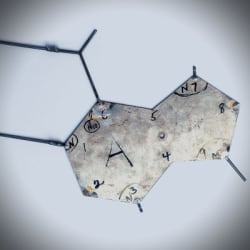Images
Current and future public health is characterized by the increase of chronic and degenerative diseases, corresponding to the worldwide ageing of the population. The increasing prevalence of these conditions together with the long incubation period of the chronic diseases and the restless technological innovations, offer new opportunities to develop strategies for early diagnosis. It is an important task of public health to critically assess the promises and the pitfalls of screening strategies. In this perspective, this MOOC will detail the background concepts of early diagnosis, the methods to assess the effectiveness and the efficiency of screening programs, the tools available of scaling up a local program, etc. In a second part of the course, current and future trends in screening in several conditions will be presented, including cancer, cardiovascular and metabolic disease, prenatal and neonatal conditions (including genetic screening), and communicable disease. By the end of this MOOC, students should be able to develop a public health perspective on screening and to actively participate to the evaluation of screening strategies. This MOOC has been prepared under the auspices of the Ecole romande de santé publique (www.ersp.ch) by Prof. Fred Paccaud, MD, MSc, Head of the Institute of Social and Preventive Medicine in Lausanne (www.iumsp.ch), in collaboration with Professor Antoine Flahaut, MD, PhD, head of the Institute of Global Health, Geneva (www.igh.ch).
Similar resources
Founded in 1559, the University of Geneva enjoys worldwide recognition and ranks amongst the top 100 best universities in the world. A polyvalent institution, it fosters the emergence of inter- and multidisciplinary fields in both research and teaching. It constantly strengthens its links with international Geneva, whilst contributing to the cultural, social and economic development of the region, notably through the promotion of research and its expertise in a wide range of fields.
UNIGE offers more than 500 programmes (including 136 Bachelor’s and Master’s degree programmes, 87 doctoral programmes) and 343 continuing education programmes covering an extremely wide variety of fields: exact sciences, medicine, humanities, social sciences, law, etc.
Its domains of excellence in research include life sciences (molecular biology, bio-informatics), physics of elementary particles, and astrophysics. UNIGE is also host and co-host to seven National Centres of Competence in Research: Frontiers in Genetics, MaNEP, PlanetS, SwissMap, Chemical Biology, Synaptic Bases of Mental Diseases and LIVES-Overcoming vulnerabilities in a life course perspective.
Just like the city of Geneva itself, the University enjoys a strong international reputation, both for the quality of its research (it ranks among the top institutions among the League of European Research Universities) and the excellence of its education. This acclaim has been won in part due to its strong ties to many national and international Geneva-based organizations, such as the World Health Organization, the International Telecommunications Union, the International Committee of the Red Cross, and the European Organization for Nuclear Research.


Water Resources Management and Policy

Planning your Wealth over a 5 year Horizon

Meeting Investors' Goals

Make Smart Investment Decisions in a Global World

Securing Investment Returns in the Long Run














